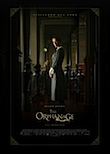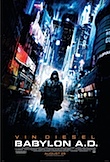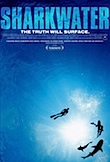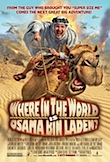 Keira Knightley may only be 23 but (along with Daniel Craig and Simon Pegg) she’s been given the unenviable job of saving the British film industry, a challenging task for someone with talent but a hard road for a young woman still learning a craft for which she often seems ill-suited. Next week we will review the mid-budget costume drama The Duchess but right now she is headlining another WWII romance (c.f. Atonement), John Maybury’s The Edge of Love.
Keira Knightley may only be 23 but (along with Daniel Craig and Simon Pegg) she’s been given the unenviable job of saving the British film industry, a challenging task for someone with talent but a hard road for a young woman still learning a craft for which she often seems ill-suited. Next week we will review the mid-budget costume drama The Duchess but right now she is headlining another WWII romance (c.f. Atonement), John Maybury’s The Edge of Love.
Knightley plays Vera Phillips, a young Welsh girl carving out a living entertaining the troops in the underground bomb shelters of burnt out London. In an awfully clunky screenwriting moment she sees a familiar face across a crowded pub and calls out “Dylan? Dylan Thomas?” and is reunited with her childhood sweetheart. After plenty of flirting, the soon-to-be great poet Thomas (Matthew Rhys) introduces her to his wife Caitlin (Sienna Miller) and a firm friendship begins, a friendship that veers in the direction of a (hinted at) ménage à trois and ends (with the help of Phillips’ shell-shocked husband Cillian Murphy) in a hail of misdirected bullets on a picturesque Welsh cliff top.
Miller’s notorious tabloid existence has a tendency to overshadow her day job, which is a shame as she is very good here and she carries almost all the emotional weight of a film that, frankly, needs all the help it can get. Rhys is fine (and reads the Thomas poetry like he’s channelling Richard Burton) but Knightley struggles, although she has her moments.
 In The Orphanage, a woman (Belén Rueda) and her husband (Fernando Cayo) decide to buy the decaying old gothic orphanage where she grew up so they can live there with their adopted, HIV-positive, young son (Roger Princep) plus his imaginary friends. Asking for trouble? You bet. The boy soon disappears, perhaps into a cave beneath the house, and the distraught mother has to solve the mystery of the cursed house before she can find him again.
In The Orphanage, a woman (Belén Rueda) and her husband (Fernando Cayo) decide to buy the decaying old gothic orphanage where she grew up so they can live there with their adopted, HIV-positive, young son (Roger Princep) plus his imaginary friends. Asking for trouble? You bet. The boy soon disappears, perhaps into a cave beneath the house, and the distraught mother has to solve the mystery of the cursed house before she can find him again.
I would have been considerably more effected by this film if the first half hadn’t been out of focus (and if the projectionist hadn’t forgotten about the reel change or needed to be told to focus the second half) but once we’d got all that sorted out the moody atmospherics (greatly aided by an effective surround sound design and the excellent Paramount sound system) push all the right buttons. Produced by Guilermo del Toro (Pan’s Labyrinth), The Orphanage is stylish horror with a heart. I much prefer this sort of thing to the Japanese production line versions we see so often.
 It’s really saying something when a director disowns a Vin Diesel film for not living up to his vision but this is what Mathieu Kassovitz has done with Babylon A.D. Apparently studio-dictated cuts have turned his subtle and sensitive political and moral allegory into a bloodthirsty shoot ’em up. As they saying goes, yeah right. Freely ripping off dozens of hit films (from Escape from New York to Blade Runner, The Matrix and Resident Evil), the cuts have rendered what might have been a campy classic into incoherence but it’s not un-entertaining.
It’s really saying something when a director disowns a Vin Diesel film for not living up to his vision but this is what Mathieu Kassovitz has done with Babylon A.D. Apparently studio-dictated cuts have turned his subtle and sensitive political and moral allegory into a bloodthirsty shoot ’em up. As they saying goes, yeah right. Freely ripping off dozens of hit films (from Escape from New York to Blade Runner, The Matrix and Resident Evil), the cuts have rendered what might have been a campy classic into incoherence but it’s not un-entertaining.
 My favourite cinematic shark is Bruce from Finding Nemo (played by Barry Humphries), a misunderstood killing machine with abandonment issues. If he’d seen Rob Stewart’s enervating documentary Sharkwater he would know that he’s not a killer at all – more people die each year as a result of Coke machine misadventure – and that he is in far greater peril from us than the other way around.
My favourite cinematic shark is Bruce from Finding Nemo (played by Barry Humphries), a misunderstood killing machine with abandonment issues. If he’d seen Rob Stewart’s enervating documentary Sharkwater he would know that he’s not a killer at all – more people die each year as a result of Coke machine misadventure – and that he is in far greater peril from us than the other way around.
In fact the whole film owes a lot to Pixar’s Nemo, often recreating famous images from that film and, if it wasn’t likely to traumatise them, I’d recommend every child who ever saw Nemo be forced to sit and watch it so they might turn into passionate eco-terrorists when they grow up.
 As agit-prop doco makers go I think I prefer Morgan Spurlock to Michael Moore. Spurlock (who sprang to fame with the McDonalds’ exposé Super Size Me in 2004) interviews people without setting them up to look stupid or venal and his everyman open-ness gives the impression that he is genuinely curious rather than embittered and certain. In Where in the World is Osama Bin Laden? Spurlock is spurred by the his long- suffering girlfriend Alex’s pregnancy to go the middle east and find out why they want to kill us all. And if he finds Osama Bin Laden in the process, all well and good. I could have done with less of the cheesy video game analysis of complex global politics but when Spurlock goes out of his way to meet ordinary people on the streets of Jordan, Israel, the West Bank, Pakistan and Afghanistan you can’t help but feel a little bit enlightened and a little bit heartened.
As agit-prop doco makers go I think I prefer Morgan Spurlock to Michael Moore. Spurlock (who sprang to fame with the McDonalds’ exposé Super Size Me in 2004) interviews people without setting them up to look stupid or venal and his everyman open-ness gives the impression that he is genuinely curious rather than embittered and certain. In Where in the World is Osama Bin Laden? Spurlock is spurred by the his long- suffering girlfriend Alex’s pregnancy to go the middle east and find out why they want to kill us all. And if he finds Osama Bin Laden in the process, all well and good. I could have done with less of the cheesy video game analysis of complex global politics but when Spurlock goes out of his way to meet ordinary people on the streets of Jordan, Israel, the West Bank, Pakistan and Afghanistan you can’t help but feel a little bit enlightened and a little bit heartened.
Printed in Wellington’s Capital Times on Wednesday 8 October, 2008.
Nothing of note to report regarding screening conditions except the problems with The Orphanage that have already been reported above.
UPDATE: A friend wrote to me after reading the Sharkwater review in the CT:
“I don’t think much of your Sharkwater review. It really doesn’t tell anyone what the film is about and why people should see it, and secondly you totally belittle the issue by comparing it to a kids cartoon! It’s the most disturbing film I’ve seen all year, and as you know I’ve seen quite a lot. Even now I feel utterly guilty eating fish, though it is the only animal flesh I can’t seem to give up. At least the Lumiere reviewer urged people to boycott the many Wellington restaurants that serve shark fin soup. The director is slightly irritating I admit, but the content is crucial… you can’t joke about films like this, unless it’s garbage (like Where in the World is OBL for example…).
In case you didn’t get it the first time read this: http://www.panda.org/index.cfm?uNewsID=146062
Glad I got that off my chest…”

